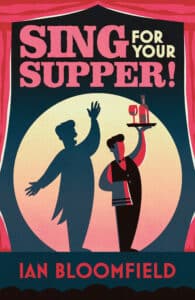In a exclusive extract from his new memoir, out on February 25, former English National Opera chorus singer Ian Bloomfield remembers an unpredicted opening night in Moscow in 1990.
We performed Verdi’s Macbeth at the Bolshoi. There are many memorable evenings in a person’s life but some stand out as exceptional. This was one. We didn’t know what to expect but, as we had performed the show several times back in the UK, we were all confident of its inherent worth as art. In our production, Macbeth’s henchmen were dressed in Soviet military uniform and the set featured many large grey blocks covered with red flags. It wasn’t until the curtain opened fully that I realised that the colours of our set were exactly the same as the colours of the interior of the Bolshoi, making the set look as if it were a part of the auditorium.
The show was going well and everyone was excited to be at the Bolshoi. In the second half (technically the beginning of act four), the chorus came out to sing ‘Patria oppressa’. We were the refugees complaining about the tyranny of Macbeth. At the climactic end, the extra voices from the sopranos went up to the top C and we all gave it our best. Mark Elder gave his wand a final thrust and then there was silence.
The silence was followed by applause.
And then applause with cheering.
And then applause with cheering and standing.
And then applause with cheering and standing and stamping and whistling and shouting and yelling.
The stage trembled, the whole building shook.
Never before had I been literally so close to bringing down the house.
The audience were cheering and in tears. An operatic version of a seventeenth-century English play had struck a chord
with their twentieth-century Russian lives. Two generations of oppression at the hands of the Soviets were now coming to an end, the story of the suffering at the hands of Stalin and his successors was at last openly told and condemned, and the spirit of the audience, drawn from an imprisoned nation that was sensing its imminent release, exploded across the auditorium.
The applause refused to abate.
We stood on stage, as if frozen, for over five minutes. Most polite applauses last for fifteen seconds or less. Very enthusiastic applauses can go on for a minute, perhaps… But over five minutes of applause was a ‘once in a lifetime’ experience. I looked around me. All the cast and chorus had tears streaming down their faces. The most stoic orchestra members, renowned for their stiff British upper lips, were openly weeping. A thick mist in my own eyes sparkled the lights.
The post When ENO went to the USSR appeared first on Slippedisc.









